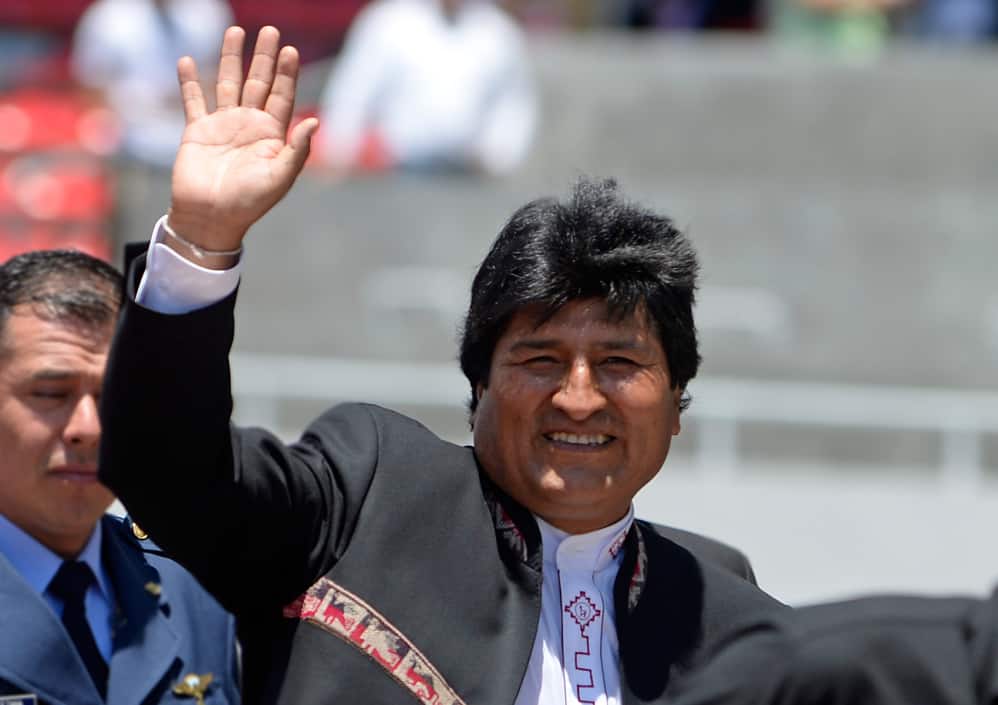Street battles broke out on Monday between supporters of President Evo Morales and opposition leader Carlos Mesa, leaving dozens wounded as protests against alleged electoral fraud in Bolivia entered a second week.
Residents of the Achumani neighborhood in southern La Paz used branches, rubble and rope to close roads and block access to public transport, with some bus drivers trying to remove the barricades.
Fist fights broke out between rival groups, which then degenerated into battles with sticks and stones as police used tear gas to try to disperse them.
Regime and opposition figures blamed each other for the violence.
In the eastern city of Santa Cruz, clashes left around 30 people wounded, one of them from a gunshot, said health official Oscar Urenda.
Demonstrations have raged since presidential elections on October 20 that saw Morales gain an unconstitutional fourth term amid allegations of irregularities in the vote count.
Mesa, who accused the government of “fraud,” has urged his supporters to keep up the pressure with strikes backed up by street protests.
“The government is entirely responsible for the violent actions,” Mesa wrote on his Facebook page.
Vice President Alvaro Garcia Linera blamed Mesa for the clashes, calling him “angry, liar and deceitful.”
“He is responsible, he is guilty,” said Garcia Linera.
La Paz’s mayor, Luis Revilla, a Mesa ally, told reporters that pro-Morales “shock groups” were provoking confrontations around the country.
In the central city of Cochabamba, clashes broke out between opposition supporters setting up barricades and regime loyalists trying to break them up.
Local media reported injuries in Cochabamba and in La Paz, where clashes between opposition and government supporters also took place.
Run-off demand
La Paz’s business district, where government offices are located, was relatively calm. But there were roadblocks in many other neighborhoods.
A general strike paralyzed Santa Cruz in the east and the mining city of Potosi in the southeast.
On Sunday, Morales claimed the opposition was preparing for a “coup d’etat.”
At the center of the conflict was a sudden and unexplained change in the ballot count last Monday that boosted Morales’s lead, pushing him over the 10-point margin of victory required to avoid a run-off.
Mesa has denounced the official results while various foreign powers, including the European Union and United States, have called for a run-off.
The Organization of American States (OAS), voicing “surprise” and “concern” over the ballot count, has agreed to conduct an audit of the results.
Morales, Bolivia’s first indigenous president, has been in power since 2006.
Already Latin America’s longest-serving leader, he is looking to remain in power until 2025 with a fourth term.
Bolivia’s constitution limits a president to two successive terms, and a 2016 referendum rejected a bid by Morales to remove term limits.
But the country’s constitutional court authorized him to stand for a fourth mandate.
The court, like the election tribunal, is made up of members appointed by Morales’s Movement for Socialism.






